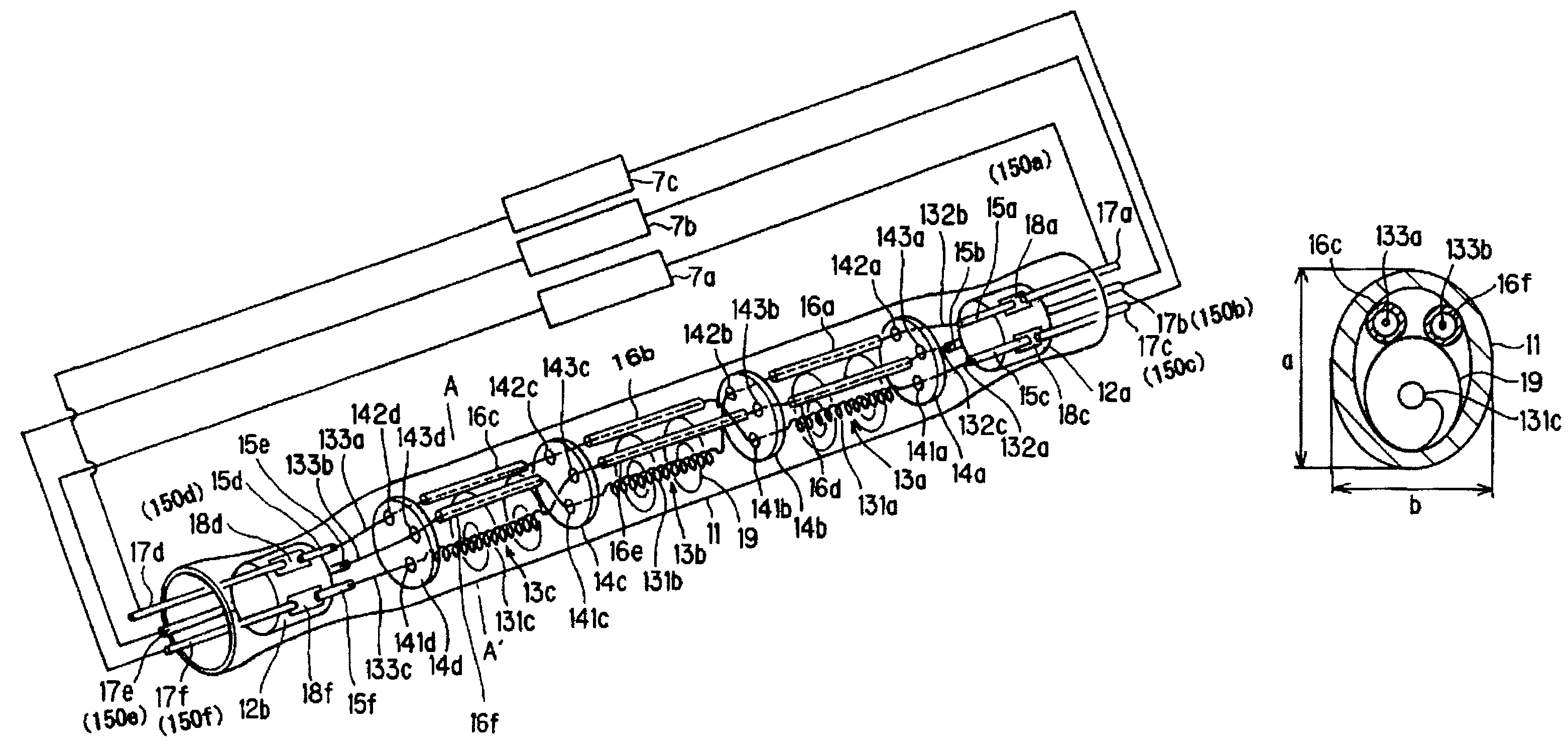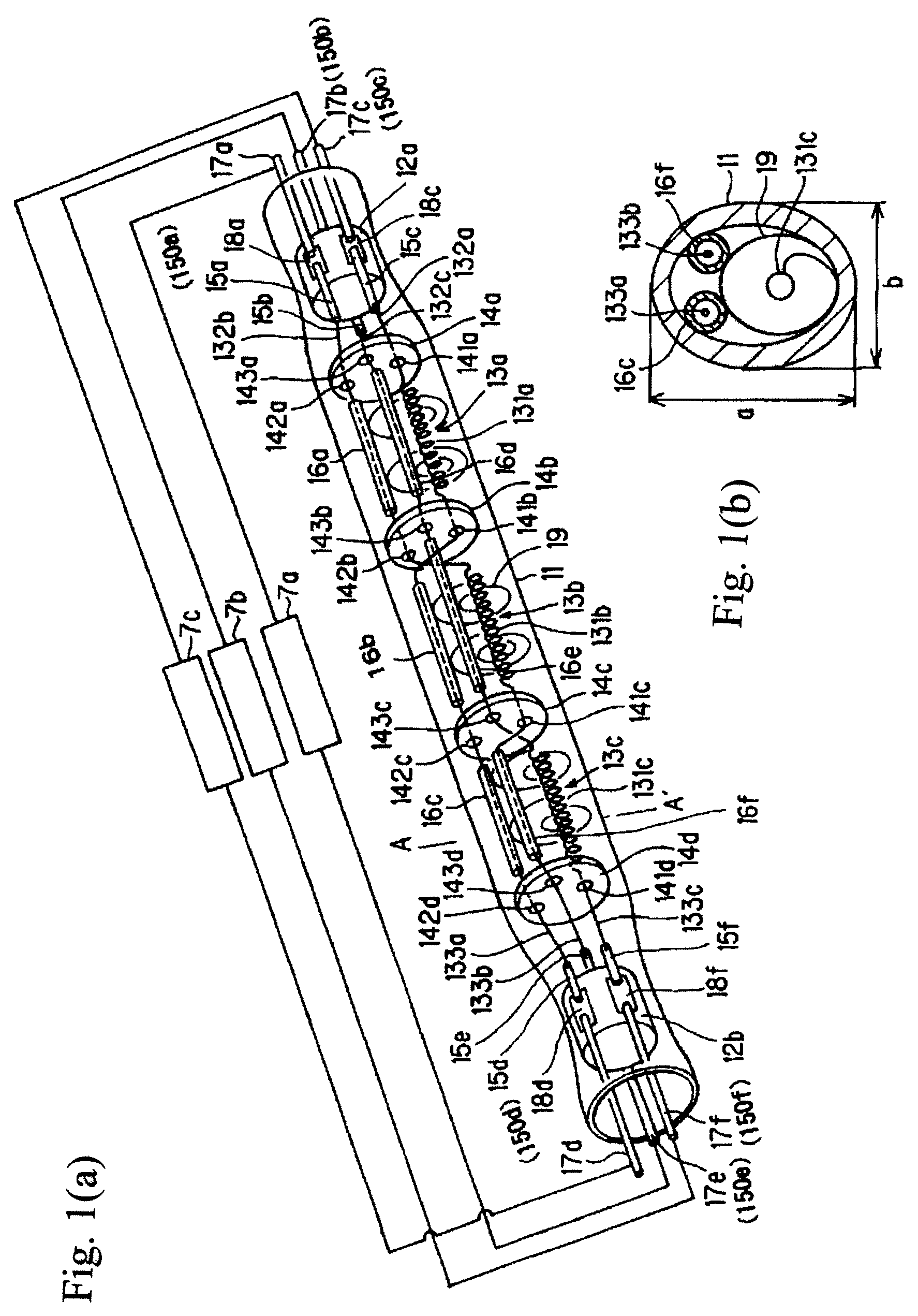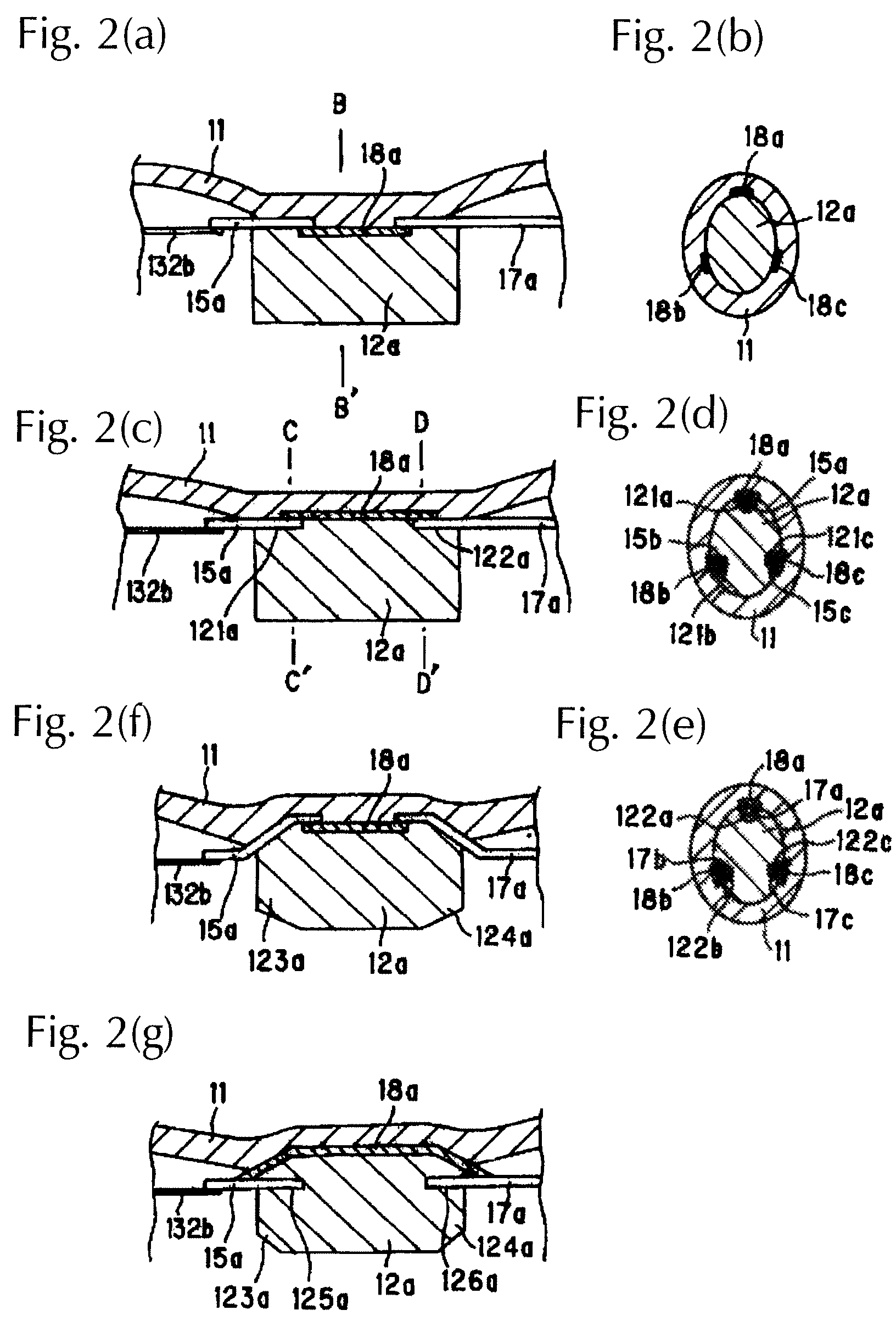Filament lamp
a technology of filament lamps and filaments, applied in the field of filament lamps, can solve the problems of difficult to impart the desired physical property after light heat treatment, narrow defined regions cannot be controlled in such a manner, and achieve the effect of high precision
- Summary
- Abstract
- Description
- Claims
- Application Information
AI Technical Summary
Benefits of technology
Problems solved by technology
Method used
Image
Examples
Embodiment Construction
(A. Arrangement of a Filament Lamp)
[0061]FIGS. 1(a) &1(b) show an embodiment of a filament lamp in accordance with the invention which is comprised of bulb 11 made of a transparent material such as, for example, silica glass or the like. As can be seen from transverse cross-sectional view of FIG. 1(b), the bulb has an oblong cross-sectional shape, but a circular shape can also be used. The term “oblong” is to be understood as encompassing all shapes in which the length a in the lengthwise direction is greater than the length b in the direction perpendicular to the lengthwise direction the cross-sectional shape, as is shown in FIG. 1(b). By using an oblong shape, the above described filament bodies and insulating tubes can be easily arranged in the direction shown in FIG. 1. The bulb 11 is filled with a halogen gas, and furthermore, there are three filament bodies 13a, 13b, and 13c in it. On the inside in the vicinity of the two ends, there are rod-shaped insulators 12a, 12b for seal...
PUM
 Login to View More
Login to View More Abstract
Description
Claims
Application Information
 Login to View More
Login to View More - R&D
- Intellectual Property
- Life Sciences
- Materials
- Tech Scout
- Unparalleled Data Quality
- Higher Quality Content
- 60% Fewer Hallucinations
Browse by: Latest US Patents, China's latest patents, Technical Efficacy Thesaurus, Application Domain, Technology Topic, Popular Technical Reports.
© 2025 PatSnap. All rights reserved.Legal|Privacy policy|Modern Slavery Act Transparency Statement|Sitemap|About US| Contact US: help@patsnap.com



